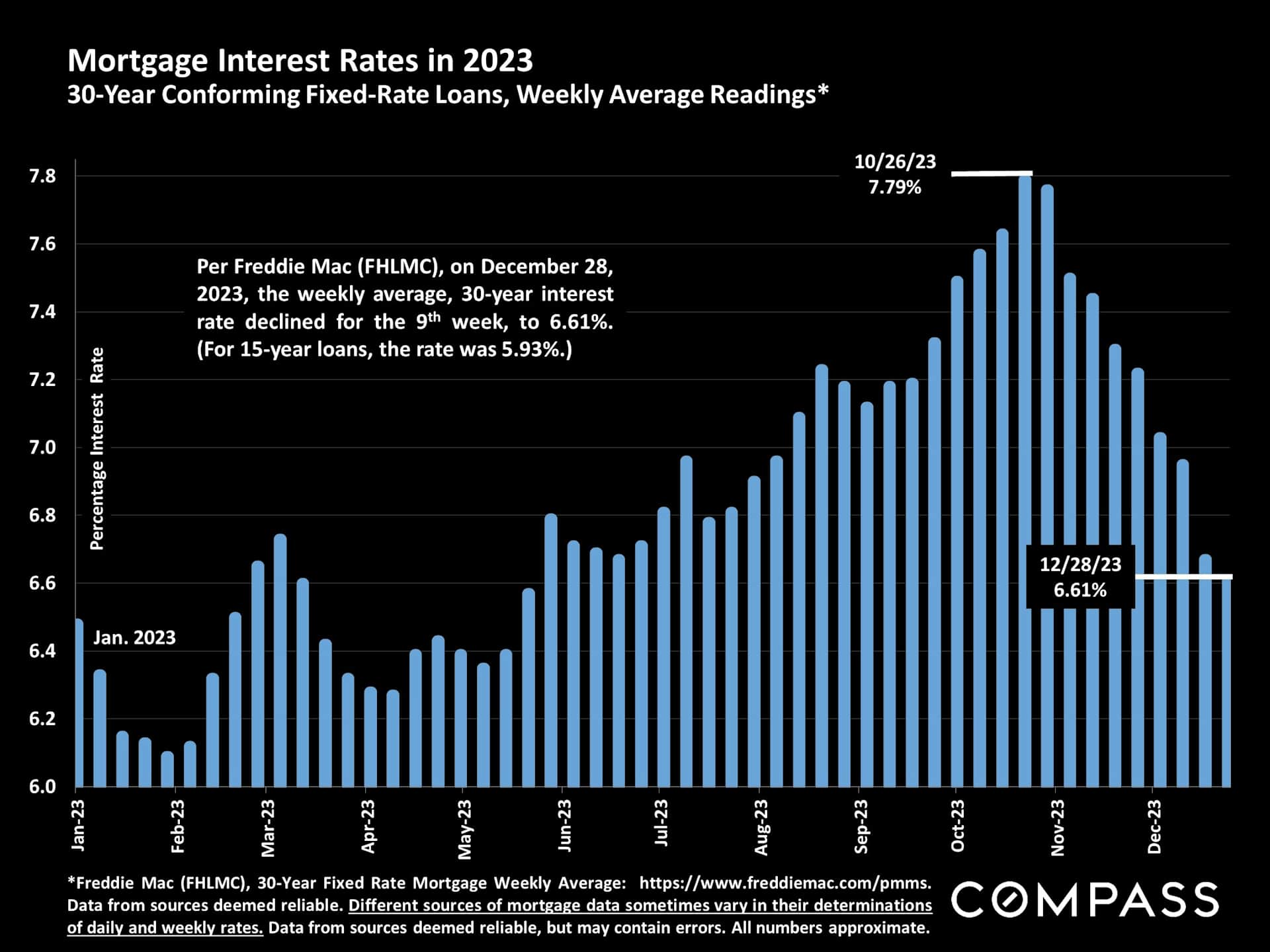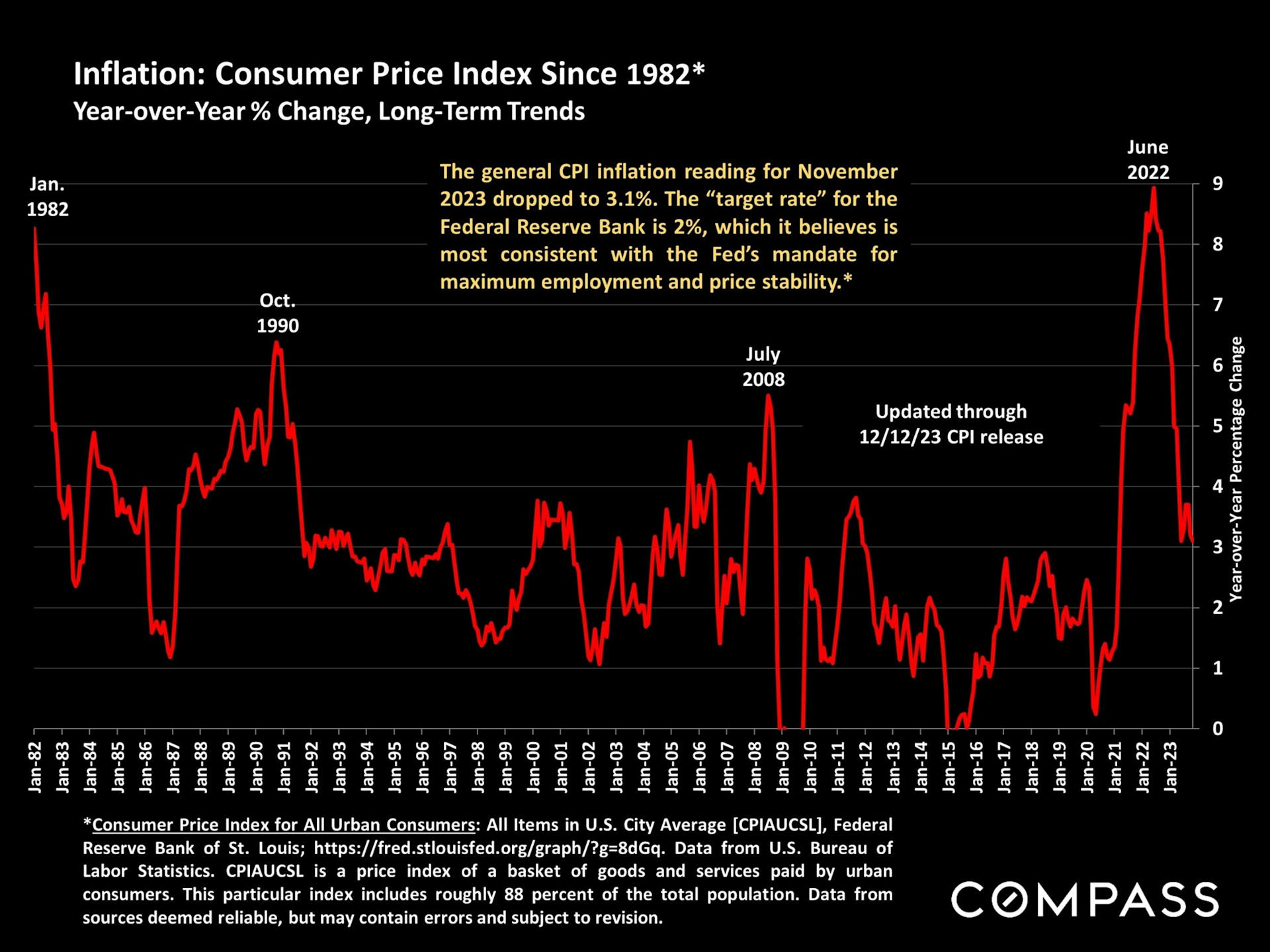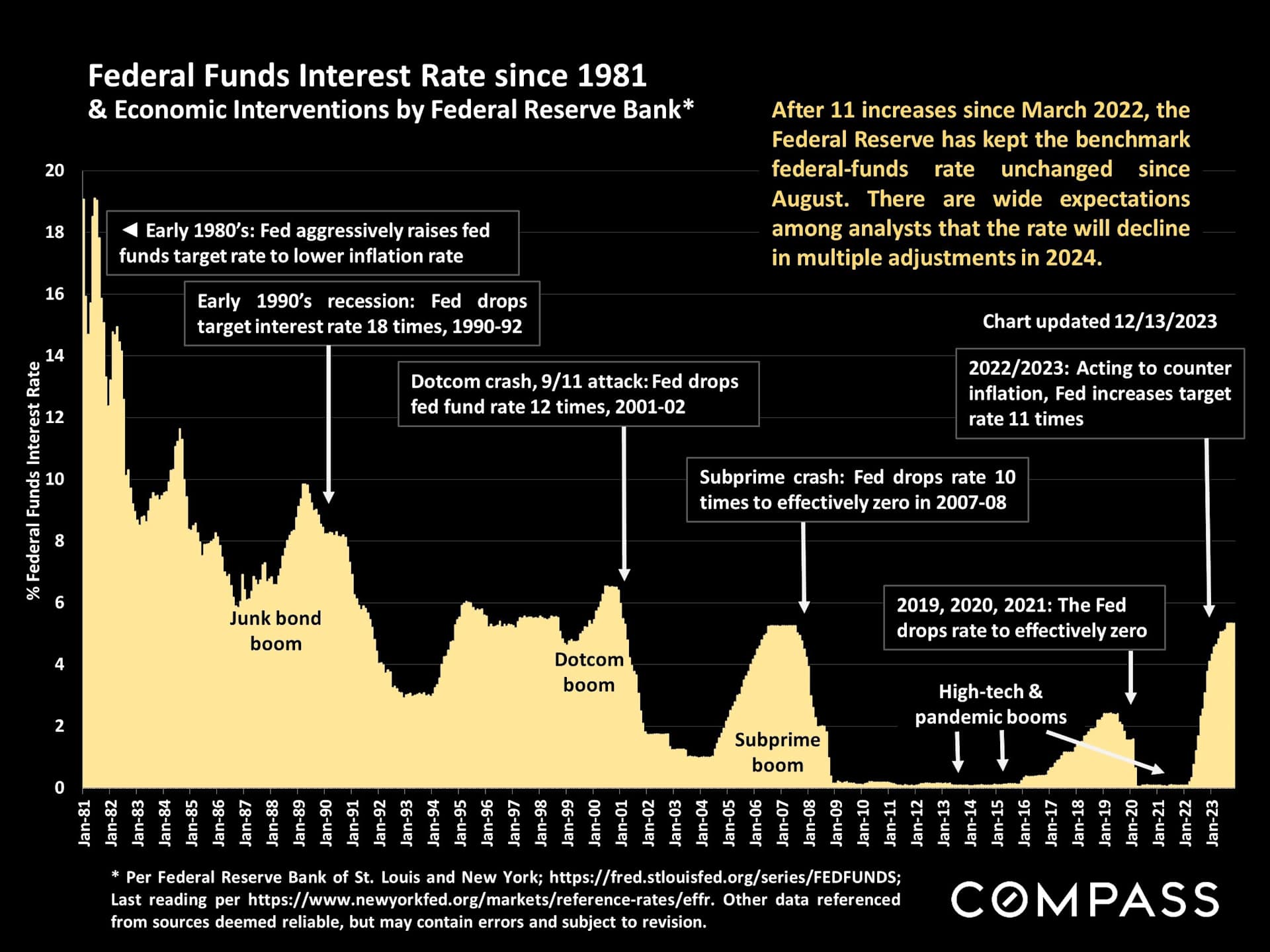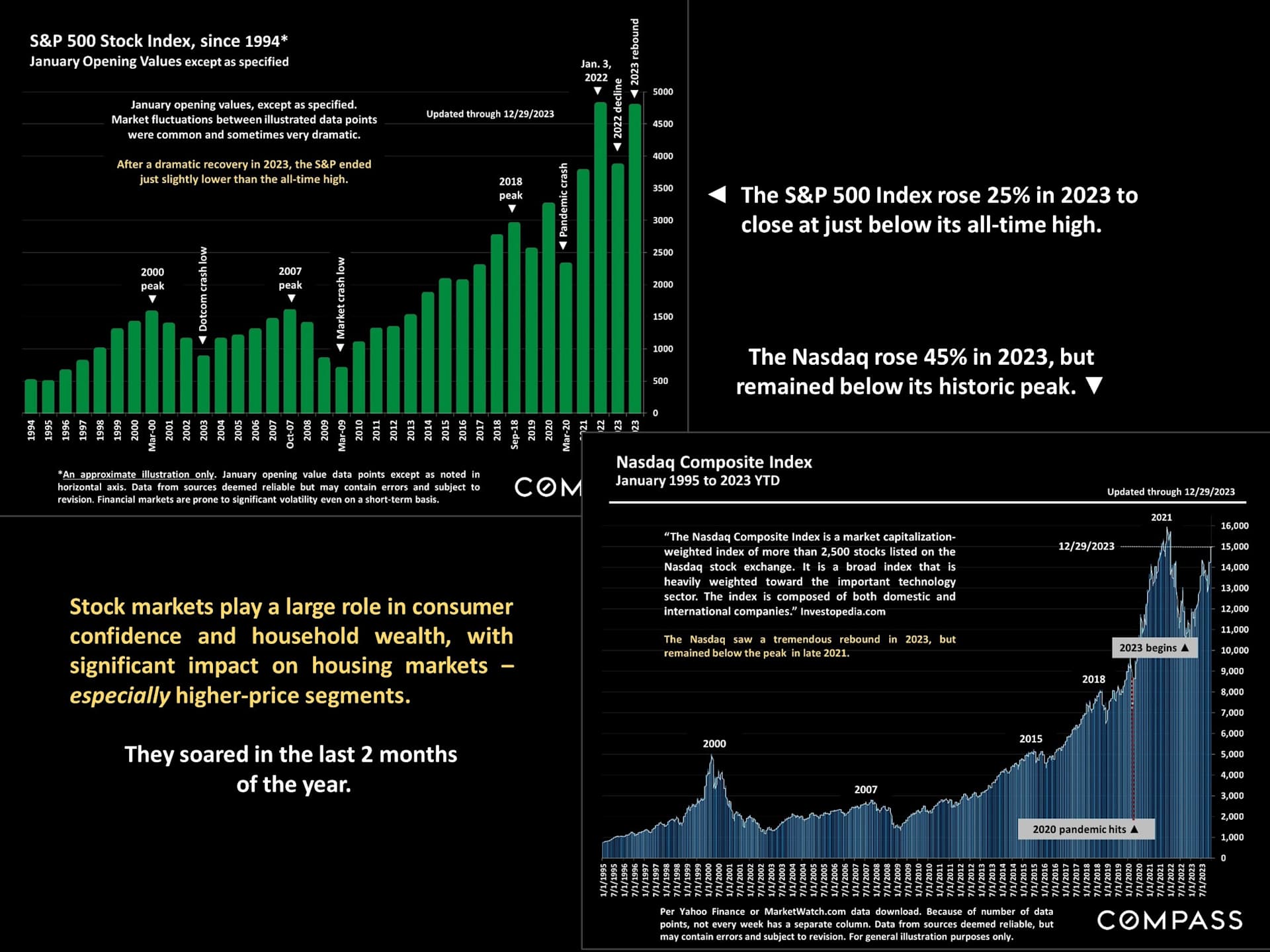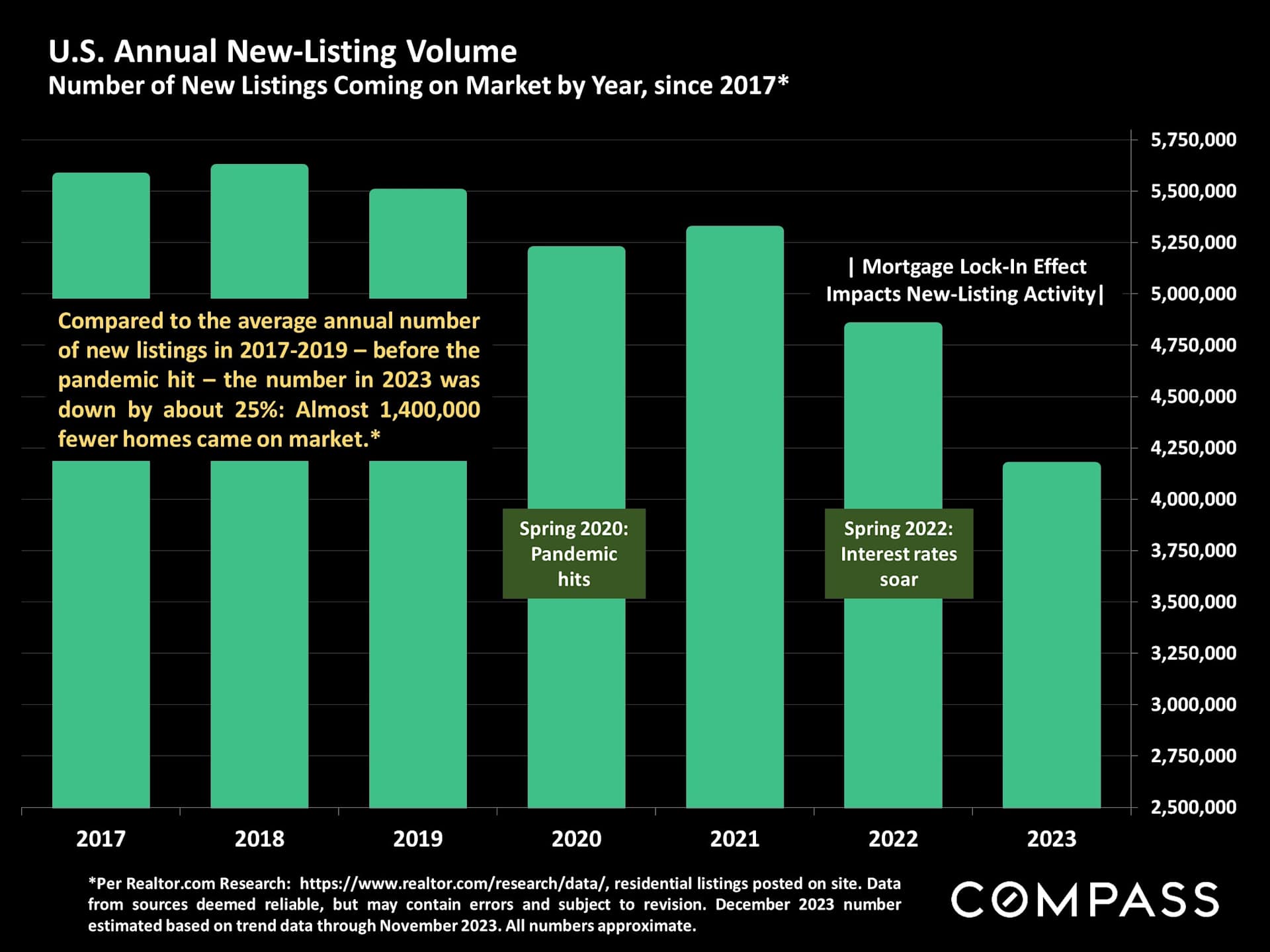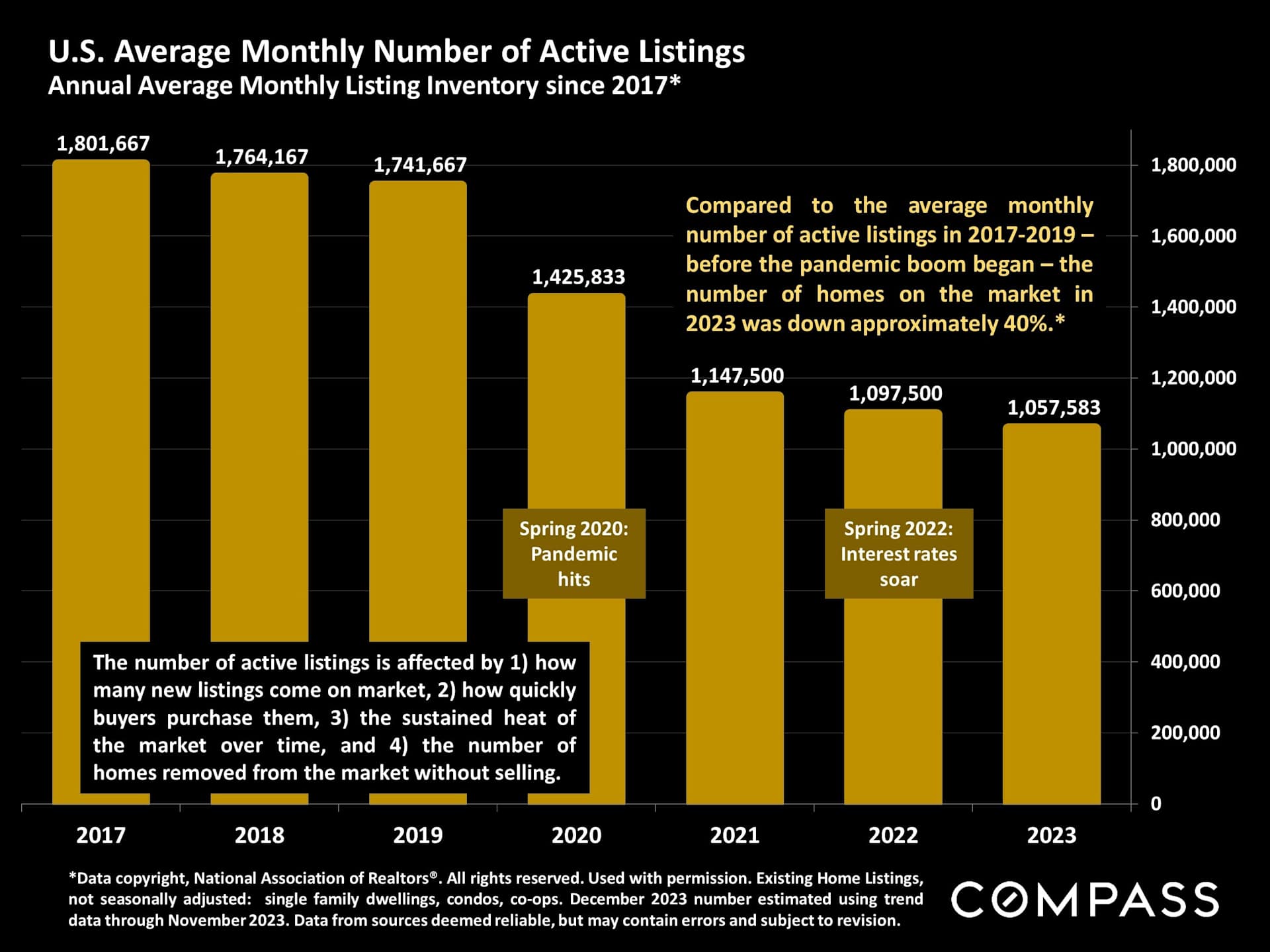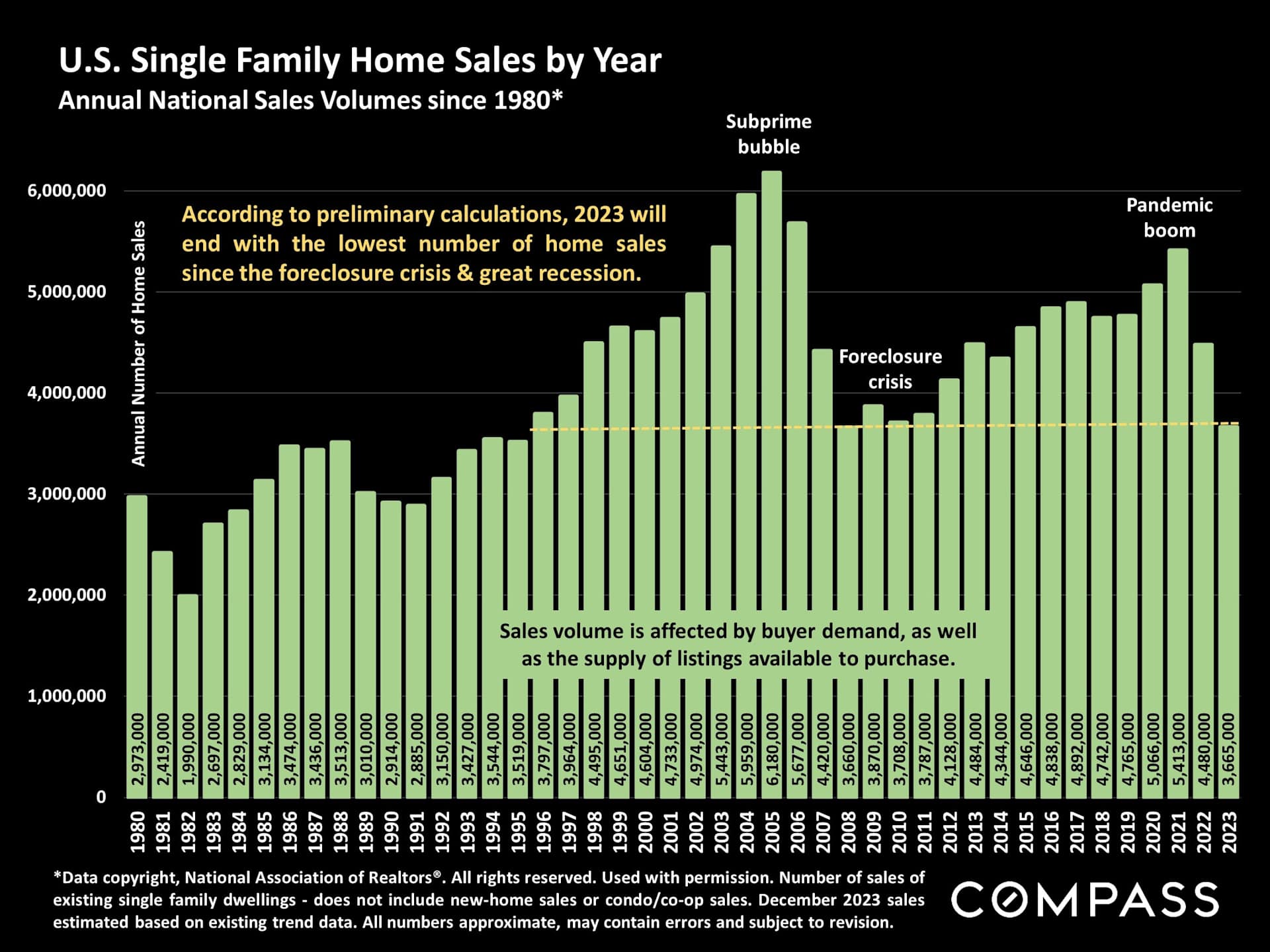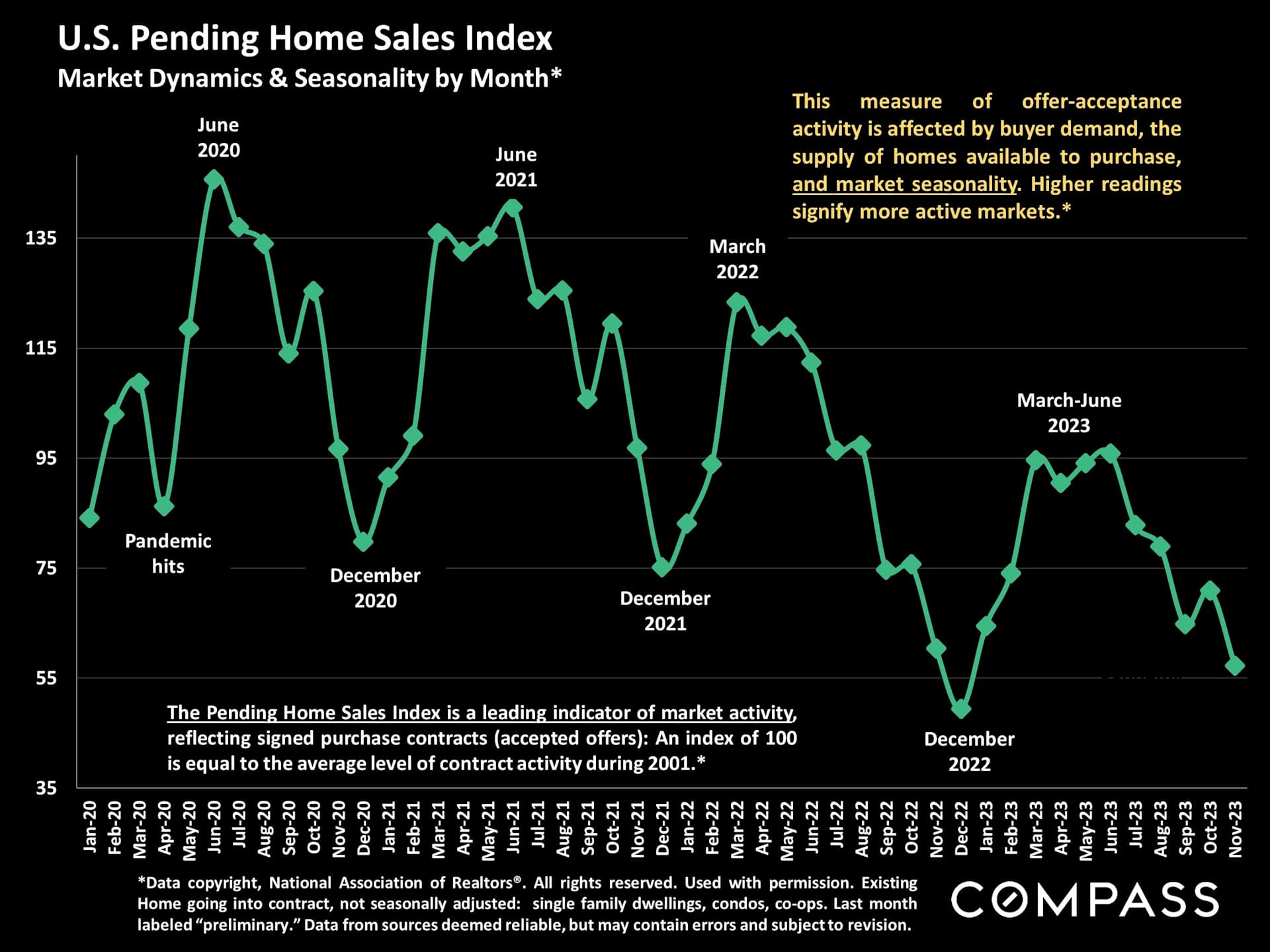The insights report below helps to share some context around the trends we are seeing within the real estate market nationally. Given the recent drop in mortgage rates, there are signs of a brighter 2024 emerging!
Dramatically Improving Economic Indicators Suggest a Brighter 2024 Housing Market
- In the last 2 months of 2023, the average weekly, 30-year mortgage interest rate dropped from 7.79% to 6.61%.
- CPI inflation declined in 2023 from 6.3% in January to 3.1% in November.
- After its end-of-vear rally, the S&P Index was up 25% and the Nasdaq up 45% in 2023.
- According to the Case-Shiller Home Price Index, national home values hit a new peak in 2023.
- The number of new listings coming on the market in 2023 was the lowest in decades, a dominant factor behind sales dropping to their lowest annual total since the great recession.
The 2023 market was characterized by high-interest rates, financial market uncertainty, surprisingly strong demand (considering the first two issues), and an extremely low supply of new listings - which maintained upward pressure on prices, even as housing affordability dropped.
Purchase activity was repressed due to interest rates and the inadequate supply of homes for sale, while for prospective sellers, the motivation to move was reduced by the mortgage lock-in effect. With interest rates falling and economic conditions rebounding - which should further boost buyer demand in 2024 - the big question is how much do rates have to fall for homeowners to start selling their homes in normal numbers again?
A national report is a huge generalization of conditions and trends across thousands of different markets. In this report, December 2023 numbers were sometimes estimated based on trend-data through November: Final adiustments are not expected to be significant. As often seen in recent years, factors affecting economic and housing market conditions can be volatile and hard to predict.
"Inflation around the globe is slowing way faster than expected. If economists are right...next year [will see] inflation back to normal levels for the first time in three years." Wall Street Journal, 12/24/23, "For Much of the World, Inflation Will Be Normal in 2024 - Finally"
"Consumer sentiment...soared 14% in December [due to] substantial improvements in how consumers view the trajectory of inflation...All age, income, education, geographic, and political identification groups saw gains in sentiment... [2024] inflation expectations plunged from 4.5% last month to 3.1% this month." University of Michigan, Consumer Sentiment Index, December 2023
"Housing starts surged to a six-month high, sales of previously owned homes picked up from a 13-year low and builder optimism boosted by increased interest from prospective buyers. Meanwhile, Americans' home-buying plans rose this month by the most in more than a year. The bounce back comes as mortgage rates have declined by...the biggest drop over a comparable period since 2009." Bloomberg News, 12/20/23
"The 30-vear fixed-rate mortrage remained below 7%...after 17 consecutive weeks above. Lower rates are bringing potential homebuyers who were previously waiting on the sidelines back into the market.. Heading into the new year, the economy remains on firm ground with solid growth, a tight labor market, decelerating inflation, and a nascent rebound in the housing market." Freddie Mac, 12/21/23 & 12/28/23
Since changes in economic indicators didn't begin to affect market psychology until early-mid November, right before the mid-winter holiday slowdown, and the home buying process takes 30 to 60 days from loan qualification and offer acceptance to closed sale, significant effects of these changes on real estate market statistics will not begin to show up until January data comes in.
Mortgage rates have plunged since October, and are currently expected to drop further in 2024.
Inflation is a huge factor in interest rates, consumer confidence, and housing and financial markets. Most analysts believe inflation will continue to fall in 2024.
Consensus opinion is that the Fed will soon begin to drop its benchmark rate. Once it determines a change is appropriate, the Fed often acts quickly and decisively.
Rarely have stock markets swung so dramatically from pessimism regarding economic trends to ebullient optimism as in the last 2 months of 2023.
The effect of high interest rates on the number of new listings coming on market has had a staggering impact on supply & demand dynamics.
Even as rising interest rates negatively affected affordability, the extremely low supply of homes for sale has maintained upward pressure on home prices.
Home sales plunged in 2023, but if economic conditions continue to improve as currently forecast, both supply and demand should rise 2024.
Monthly accepted-offer activity, seen below, highlights the effects of market seasonality. Activity usually picks up rapidly in the 1st quarter to peak in spring.
A long-term illustration of national median house sales prices - which defying expectations, saw a strong recovery in 2023 after the mid-2022 plunge.
Perhaps due to their relative affordability, median prices of condos and co-ops rebounded even more than house prices to hit a new high last year.
Across all national regions, there has been very substantial home price appreciation over the past 5 years.
Speed of sale is mostly determined by the intensity of buyer demand as compared to supply. Median days on market remain very low by long-term standards.
As interest rates rose, so did the percentage of all-cash buyers - who have played an increasing role in supporting demand and home prices.
One of the biggest factors behind demand is population change, especially migration, which has been a particularly important issue since the pandemic.
The rate of new home construction is a critical dynamic in both the supply of homes for sale and housing affordability. It varies widely by state.
